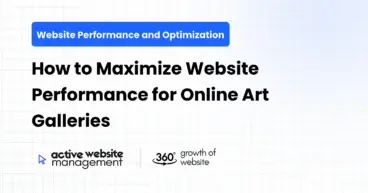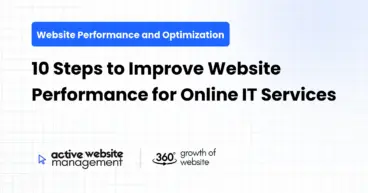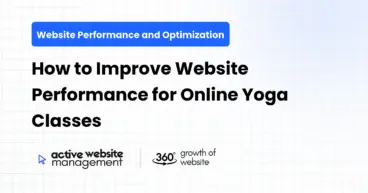January 7, 2025
6 min read
Optimizing a real estate website for search engines is a multifaceted endeavor. This guide will walk you through the best practices for enhancing your site’s performance, visibility, and user satisfaction.
Understanding the Importance of Real Estate Website Optimization
In the competitive world of real estate, having a well-optimized website is critical. But why does it matter?
What is Real Estate SEO?
Real Estate SEO involves the use of various strategies and techniques to improve the visibility of a real estate website in search engine results. This includes keyword optimization, content development, technical adjustments, and more. The ultimate goal is to attract more organic traffic and generate leads.
Why is Property Website Optimization Essential?
Increased Visibility: A higher ranking on search engine results means more potential clients can find you.
Improved User Experience: Optimization ensures your site is user-friendly, leading to higher conversion rates.
Competitive Edge: With many property listings online, standing out ensures better results for your business.
Don’t Just Maintain Your Website—
Grow It using Active Website Management! Don't Wait for Growth—Accelerate It with Active Website Management
Building the Foundation: Website Structure and Navigation
A well-organized site structure is crucial for both users and search engines.
Creating a User-Friendly Navigation
Logical Layout: Develop a layout that reflects user intent. Group similar listings and provide clear paths to find specific properties.
Simple Menus: Avoid cluttered menus. Opt for drop-down or mega menus to categorize listings efficiently.
Accessible Links: Ensure internal links are accessible. Use descriptive, keyword-rich anchor texts that guide the user.
Hierarchical Structure
Homepage Optimization: Include primary keywords such as “real estate SEO” and “property listings.” This page should act as a portal to other important sections.
Category Pages: Use these to segment properties by location, type, and price range, enhancing their discoverability.
Individual Listings: Each property should have a dedicated page using optimized meta tags and detailed descriptions.
Optimizing Content for Search Engines
High-quality content is king when it comes to drawing traffic to your real estate website.
Keyword Research and Implementation
Identify Keywords: Use tools like Google Keyword Planner to identify high-volume keywords such as “property website optimization.”
Strategic Placement: Integrate keywords naturally into titles, meta descriptions, headers, and throughout the body text.
Long-Tail Keywords: Focus on long-tail keywords to target specific searches, like “luxury beachfront property listings.”
Crafting Engaging Property Descriptions
Detailed Descriptions: Provide comprehensive details about each property’s unique features to engage potential clients.
Emotional Language: Tap into the emotional aspects of home buying by highlighting lifestyle benefits and possibilities.
Multimedia Elements: Utilize high-quality images and videos to give prospective buyers a virtual tour experience.
Technical SEO Components
Technical optimization ensures that your real estate website runs smoothly and is easily accessible by search engines.
Mobile Optimization
Responsive Design: Implement a responsive design to ensure your site looks great on all devices, including smartphones and tablets.
Fast Loading Times: Use tools like PageSpeed Insights to check and improve your site’s load speed, reducing bounce rates.
Mobile-First Indexing: Test your mobile site’s version occasionally since search engines prioritize it for indexing and ranking.
SSL Certificates: Secure your site with HTTPS to build trust and improve search rankings.
Reliable Hosting: Choose a hosting provider known for uptime and reliability, critical for preventing disruptions.
Regular Backups: Implement scheduled backups to secure your data and recover quickly from technical issues.
Don't Wait for Growth—Accelerate It with
Active Website Management Don't Wait for Growth—Accelerate It with Active Website Management
Leveraging Local SEO for Real Estate
Since real estate is inherently local, optimizing for local searches boosts your chances of connecting with nearby buyers.
Google My Business Optimization
Claim Your Listing: Ensure that your business is listed on Google My Business and verified for accuracy.
Complete Information: Provide a comprehensive business profile with updated contact information, hours, and location.
Customer Reviews: Encourage satisfied clients to leave positive reviews, significantly impacting local search rankings.
Local Keywords and Content
Local Keywords: Optimize with local keywords, like “homes for sale in [Your City],” to attract city-based searches.
Localized Blog Content: Create blog posts about local market trends, events, and neighborhood guides to appeal to residents and elevate your expertise.
Enhancing User Engagement
Engaging visitors translates to better conversions and repeat traffic.
Utilizing Calls to Action (CTAs)
Persuasive CTAs: Use action-oriented language for your CTAs, like “Schedule a Tour” or “See Current Listings.”
Strategic Placement: Place CTAs prominently on all pages, especially individual property listings and the homepage.
Testing and Optimization: A/B test different CTAs to identify variations that yield the highest click-through and conversion rates.
Interactive Features
Live Chat: Offer a real-time live chat option to assist users and answer their queries quickly.
Property Search Tools: Implement customizable search tools allowing visitors to filter properties based on their criteria.
Virtual Reality Tours: Use VR tours to give users an interactive experience, helping them visualize themselves in the home.
Building and Maintaining Quality Backlinks
A strong backlink profile enhances domain authority and boosts search rankings.
Identifying Link Opportunities
Networking with Local Businesses: Partner with local services and businesses for mutual link exchanges.
Content Marketing: Publish high-value, shareable content that naturally attracts backlinks.
Guest Blogging: Write guest articles for industry-related websites to gain backlinks while establishing authority.
Monitoring and Disavowing Bad Links
Track Backlinks: Use tools like SEMrush to track and analyze your website’s backlink profile.
Identify Toxic Links: Identify low-quality or spammy links that could harm your domain authority.
Disavow Unwanted Links: Use Google’s Disavow Tool to inform search engines to disregard these harmful links.
Active Website Management: Consistent Updates and Audits
Real estate websites must be dynamic entities that reflect up-to-date information and optimized practices.
Collaborating with Active Website Management
Active Website Management can be an invaluable partner for maintaining your real estate website. They offer services including:
Regular Updates: Keeping your site content fresh and relevant with the latest industry trends and property listings.
Technical Audits: Performing in-depth technical audits to identify and fix issues, enhancing your site’s performance.
Comprehensive Reporting: Providing analytics and actionable insights for informed decision-making and improved strategies.
Routine SEO Audits and Updates
Monthly Audits: Schedule regular audits to identify and fix any issues that affect site health.
Content Refreshes: Update property listings and blog posts periodically to ensure accuracy and relevancy.
Performance Analysis: Use analytics tools to assess site performance, visitor behavior, and conversion rates.
Conclusion: Embracing Continuous Improvement
Real estate website optimization is an ongoing process that requires consistent effort and adaptation. By implementing the best practices outlined here, you’ll boost your website’s visibility, enhance user engagement, and ultimately increase your lead generation and conversions. Stay proactive, keep learning, and adapt to the ever-changing digital landscape to maintain a competitive edge in the real estate market.







